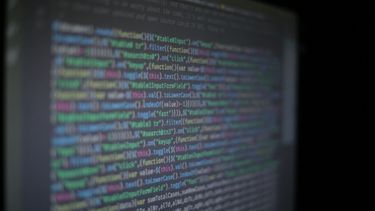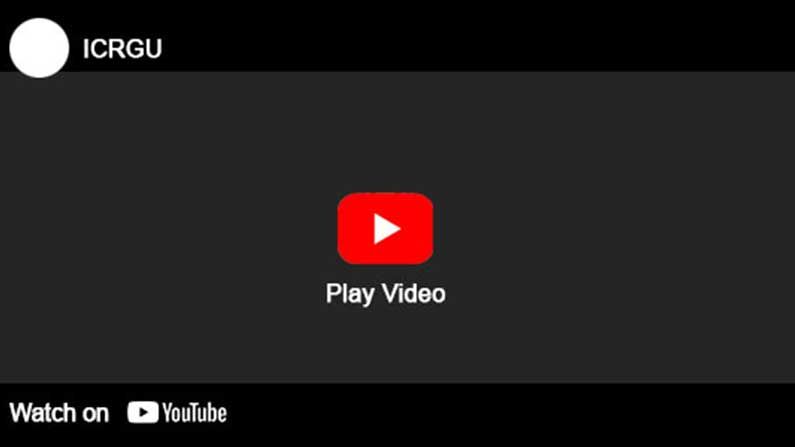
Computer Science and Cyber Security
Computer science and cyber security are integral to everything we do. Study one of our courses and break into an industry of cutting-edge technologies.
Undergraduate Pathway in Computer Science and Cyber Security
- You will be learning from the best: accredited Cisco Instructors.
- RGU was recognised as a top modern university in Scotland for student experience in Computer Science (Complete University Guide 2025).
- Degrees are accredited by the British Computer Society (BCS) for the purposes of fully meeting the academic requirement for registration as a Chartered IT Professional.
Duration
- 2 semesters
Intakes
- September
- January
Location
- Aberdeen
Degrees Available
BSc (Hons) Cyber Security
Cyber security professionals are in high demand across the world, and this course will ensure you are industry-ready. Upon graduating, you will have the knowledge, skills and experience to prevent and minimise cyber security threats and incidents. You will also know how to protect critical systems from internal and external threats across a wide range of industries.
Find out more: BSc (Hons) Cyber Security
BSc (Hons) Computer Science
In choosing Computer Science, you will study object-oriented software design, learn systems development skills and understand how to apply them in practice. This technical knowledge will form the basis for a career as a professional software developer, enabling you to work effectively across a variety of computing platforms.
Find out more: BSc (Hons) Computer Science
BSc (Hons) Data Science with Artificial Intelligence
Step into the future with a career in Data Science and Artificial Intelligence (AI). With this course, you will draw insights from data using a range of techniques. You will learn how to present your findings with data visualisation tools and optimise AI to become an expert in Machine Learning.
Find out more: BSc (Hons) Data Science with Artificial Intelligence
School of Computing
| Year | Location | Duration | Fee |
|---|---|---|---|
| First Year Degree | ICRGU | 2 semesters | ICRGU Fees |
| Second Year Degree | School of Computing, RGU | 2 semesters | RGU Fees |
| Third Year Degree | School of Computing, RGU | 2 semesters | RGU Fees |
| Final Year Degree | School of Computing, RGU | 2 semesters | RGU Fees |
Course Details
Semester 1 - Modules
From September 2024 to January 2025, there have been some changes to the computing modules to align with updates made to the University’s Year 1 computing curriculum. If you have any questions about the module changes or content, please contact the College Support Team: info@ic.rgu.ac.uk
Interactive Learning Skills and Communication (ILSC)
To develop a range of academic and communicative skills necessary for successful study in Higher Education. To develop independent learning and encourage students to take responsibility for their personal, academic and professional development. To develop the knowledge and ability to use a range of digital technologies.
Mode of delivery
Face-to-face
Contact hours (per semester/modules)
Contact hours: 50
Self-directed study hours: 90
How will I be assessed?
Assessment A,B,C (70%) and closed book examination (30%). These modules carry a standard minimum progression requirement: pass mark 50% with minimum of 50% in each component. This module will only be marked as PASS or FAIL on certificate of attainment.
Recommended Reading
Bailey, S. (2014). Academic Writing: a Handbook for International Students. (4th ed). London: Routledge
De Chazal, E (2014) English for Academic Purposes Oxford University Press
Denscombe, M. (2010) The Good Research Guide: for Small-scale Research Projects. 4th ed. Maidenhead: Open University Press.
Godfrey, J. (2013) How to Use Your Reading in Your Essays. 2nd ed. Basingstoke: Palgrave Macmillan.
Powell, M. (2011) Presenting in English: how to give successful presentations. Cengage Learning: London.
Schmitt, D. and Schmitt, N. (2011) Focus on Vocabulary 2: Mastering the Academic Word List. UK: Pearson Education
Problem Solving & Modelling (modification completed for 202403)
To provide students with the understanding of problems which arise in computing situations and the practical skills for the efficient solution of these problems.
To develop appropriate skills in problem solving and critical thinking, and applying these tools and techniques in a variety of settings.
Mode of delivery
Face to Face
Contact hours (per semester/module)
Contact hours: 48
Self-directed study hours: 100
How will I be assessed?
Mid-term exam (50%) final exam (50%). In order to pass the module students must achieve at least a grade D overall – 40% AND a minimum of 35% in each examination and coursework weighted 30% and above.
Recommended Reading
TBC
Computing Skills (modification completed for 202403)
Describe computer systems and develop software in a high-level language. Recall and express the skills needed to design, develop and evaluate solutions to problems. Develop fundamental skills in Information Technology. Provide students with the competencies needed to design and develop simple computer programs using C#.
Mode of delivery
Face to Face
Contact hours (per semester/module)
Contact hours: 48
Self-directed study hours: 100
How will I be assessed?
Mid-term assessment (50%) and Final in-class assessment (50%). In order to pass the module students must achieve at least a grade D overall – 40% AND a minimum of 35% in the examination and coursework weighted 30% and above.
Recommended Reading
Deitel, P. & Deitel, H. (2021). C# How to Program (11th ed.). Pearson.
Richter, J. (2019). CLR via C# (4th ed.). Microsoft Press.
Exploring Computing Devices (CM1101 – New Module for 202403)
To enable students to develop interactive physical systems using software development tools.
To learn single-board computers that are capable of processing data captured from physical sensors and controlling actuators for output.
To learn implementation of hardware devices.
Mode of delivery
Face to Face
Contact hours (per semester/module)
Contact hours: 48
Self-directed study hours: 100
How will I be assessed?
Mid-term assessment (50%) and Final in-class assessment (50%). In order to pass the module students must achieve at least a grade D overall – 40% AND a minimum of 35% in the examination and coursework weighted 30% and above.
Recommended Reading
WALDRON, R. and Backstop Media. 2015.JavaScript Robotics: Building NodeBots with Johnny-Five, Raspberry Pi, Arduino, and BeagleBone
Rinehart, M., 2015. Javascript object programming
Stallings, W., 2012. Computer Organization and Architecture. 9th ed. Pearson Education.
Dunbar, N., 2020. Arduino Software Internals: A Complete Guide to How Your Arduino Language and Hardware Work Together
Seneviratne, P., 2017. Building Arduino PLCs: The Essential Techniques You Need to Develop Arduino-Based PLCs
Semester 2 - Modules
From September 2024 to January 2025, there have been some changes to the computing modules to align with updates made to the University’s Year 1 computing curriculum. If you have any questions about the module changes or content, please contact the College Support Team: info@ic.rgu.ac.uk
Object Orientated Programming
This module aims to introduce you to reading, designing and writing computer code using Java. It is important that you develop both your coding skills and your design skills by completing all the exercises which you are given at each lab session. Along the way you will also pick up skills in debugging and testing code.
To be successful on this module you need to keep up with the module content and do all the exercises before the next lecture. The lecture builds on previous lectures and it is very easy to fall behind.
Mode of delivery
Face to face
Contact hours (per semester/module)
Contact hours: 48
Self-directed study hours: 100
How will I be assessed?
Mid-term in-class assessment (50%) Fina in-class assessment (50%). In order to pass the module students must achieve at least a grade D overall – 40% and a minimum of 35% in the examination and coursework weighted over 30% and above.
Recommended Reading
Big Java Late Objects by Cay Horstmann
Computer Systems and Networking (Under review: 202501 semester)
Provides a general introduction to computer systems and computer networks. It provides students with theoretical and practical knowledge about the computer system architecture, the way data is represented, how to set up, configure, and manage network devices and computer networks.
Mode of delivery
Face to face
Contact hours (per semester/module)
Contact hours: 48
Self-directed study hours: 100
How will I be assessed?
Mid-term exam (50%) and Final coursework submission (50%). In order to pass the module students must achieve at least a grade D overall – 40% and a minimum of 35% in the examination and coursework weighted 30% and above.
Recommended Reading
Computer Systems: John L. Hennessy, David A. Patterson, Computer Architecture: A Quantitative Approach, Morgan Kaufmann, 2011
Networking: Troy McMillan, Cisco Networking Essentials, Sybex, 2015
Computing Information Systems (Under review: 202501 semester)
Provide a general introduction to information systems, including information architecture and the development of web-based information systems. It provides students with practical knowledge of the information system development process, associated techniques and technologies with a focus on web-based information systems.
Mode of delivery
Face to face
Contact hours (per semester/module)
Contact hours: 48
Self-directed study hours: 100
How will I be assessed?
Coursework written submissions (50%) project work/presentation (50%). In order to pass the module students must achieve at least a grade D overall AND a minimum of 35% in the examination and coursework
Recommended Reading
Rutter, R. et al. 2006. Web Accessibility: Web Standards and Regulatory Compliance.
Any suitable HTML textbook
W3Schools, https://www.w3schools.com/. (HTML site created by web standards regulator W3C, most up to date resource)
Cyber Security Fundamentals (CM1131 – New Module for 202501 Semester)
Provide students with a strong foundation in key concepts, enabling them to identify attack patterns, apply attach modelling techniques, and develop practical skills in the ethical use of adversary tools, preparing them for advanced studies and empowering them to address Cyber Security challenges responsibly and effectively.
Mode of delivery
Face to face
Contact hours (per semester/module)
Contact hours: 48
Self-directed study hours: 100
How will I be assessed?
Coursework (100% – subject to change). In order to pass the module students must achieve at least a grade D overall AND a minimum of 35% in the examination and coursework
Recommended Reading
Diogenes, Y., & Ozkaya, E. (2022). Cybersecurity Attack and Defence Strategies: Improve your security
posture to mitigate risks and prevent attackers from infiltrating your system. Packt Publishing Ltd.
2 Brooks, C. J., Grow, C., Craig Jr, P. A., & Short, D. (2018). Cybersecurity essentials. John Wiley & Sons.
3 Stallings, W. (2021). Network Security Essentials. Pearson.
4 Rush, G. (2023). Introduction to Cyber Security Operations and the Incident Management Lifecycle. Wiley.
5 Erickson, J. (2020). Hacking: The Art of Exploitation. No Starch Press.
6 Ransome, J., & Misra, A. (2018). Core software security: Security at the source. CRC Press.
Requirements
In addition to meeting the minimum ICRGU Academic Entry Requirements, students applying for the Computing programmes are required to hold a high school qualification in Maths.
Popular careers
-
IT Security Engineer
-
IT Risk and Fraud Specialist
-
Digital Forensics Expert
-
Software Developer
-
Computer Programmer
Campus Facilities
Robert Gordon University’s beautiful riverside campus provides the perfect learning environment. The School of Computing boasts the following facilities:
- Nine IT labs
- 335 desktop workstations
- A specialist networking lab with kit dedicated to the teaching of network security
Take a tour of our industry-standard facilities and find out what RGU has to offer.
Tour the Campus